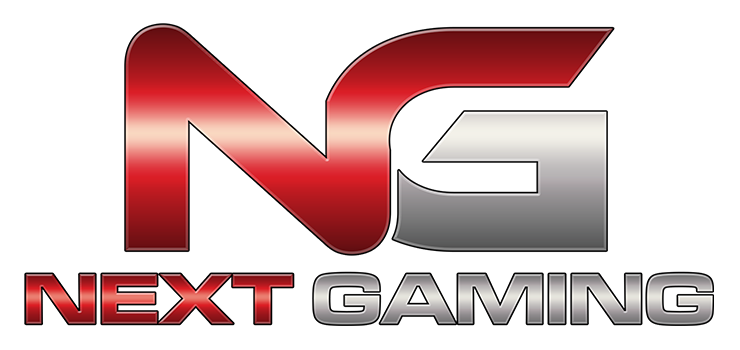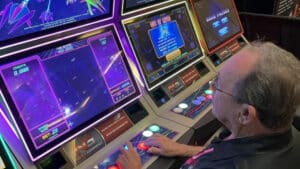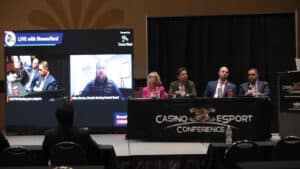A look at more small suppliers that are succeeding with big talent.
From IGT to Aristocrat to Light & Wonder, large slot suppliers typically dominate industry news. Last month, we examined two up-and-coming slot suppliers—Bluberi and Eclipse Gaming—that are breaking into new markets thanks to infusions of veteran talent, much of it from those same large slot manufacturers.
This month, we examine three other companies making their names in new slot markets because they tapped into veteran talent.
Gaming Arts
If ever there was a dream team from top to bottom among emerging casino slot suppliers, Gaming Arts has it.
Founded in 2009 by David Colvin, an inventor with a long list of patents and IP, Gaming Arts made its name as a bingo supplier. Colvin formed the company after purchasing the bingo and keno divisions of Las Vegas Gaming, Inc. The company still provides bingo and keno systems and supplies to hundreds of operators, with more than 100 proprietary bingo and keno games.
Colvin made the decision to move his company into the casino slot business, and in 2018 he tapped Mike Dreitzer, a 20-year industry veteran who had been the North America president for Ainsworth Game Technology, to become the company’s president. He had already brought on a respected veteran as director of game development—Keith Kruczynski, who spent 12 years as one of the primary game developers for the former Bally Technologies.
Dreitzer wasted no time in completing his dream team. He brought in IGT, Bally and Scientific Games development veteran Jean Venneman as chief commercial officer. Now Gaming Arts’ chief operating officer, Venneman is a legend in her field, having led the team that produced IGT’s Wheel of Fortune in 1996.
As product marketing manager, Dreitzer brought in Jason Babler, who worked with him at Ainsworth, and also had been a marketing executive with Station Casinos and Club Fortune Casino.
Gaming Arts has grown rapidly since that dream team was formed, following a strategy of producing unique game groups that offer new takes on the slot experience through themes, presentation, and of course, the engineering possible with veteran talent.
For Venneman, the new venture presented a chance to go back and create success within a smaller organization. “I had left my two-year arrangement with High Five Games, and I hadn’t honestly really thought about my next move, but I did know that I didn’t want to go back into another one of the bigger manufacturers, having already spent time at IGT and Sci Games,” she said.
“The thought of going to another small organization was on my mind. And then Mike Dreitzer called and said he had just arrived at Gaming Arts and thought that my skill set would be complementary to his … I was looking forward to having a wider-ranging role in a smaller organization, instead of the bigger organizations where you’re just trying to hang on to what you have. I wanted to really experience that trajectory of rapid growth that we were anticipating having at Gaming Arts.”
She added that having someone like Kruczynski onboard was a bonus. “That was crucial, because as a new game developer and new slot manufacturer, content is everything. We knew as the small guys, we would have some operators that weren’t so interested in trying us, and then others that fully believe that the more competition the better, and would give us a good opportunity, but it does definitely come down to the game. So knowing that Keith was already onboard—and I knew Keith from my prior history—I knew that we had somebody who was going to create some great games for us.”
Veteran talent not only leads to great games, Venneman said; it opens doors to get those great games noticed. “It’s been very helpful as the new supplier,” she said. “When some of our sales folks would walk in to cold-call an operator and say, hi, we’re Gaming Arts, they would say, ‘Yeah, never heard of you, don’t care.’ If those same sales reps could say, ‘Mike Dreitzer, Jean Venneman, Keith Kruczynski,’ then suddenly it’s, ‘Oh, yeah, I know those guys.’ It did help provide a certain amount of legitimacy to the organization for those operators who didn’t know anything about us.”
Today, Gaming Arts has more than 1,000 units in the field, including major hits like Casino Wizard, a machine offering video versions of blackjack, baccarat, craps and roulette, with the same rules and game play as the live table games, a machine that came out at precisely the right time as Covid shutdowns decreased play at live tables. “It’s definitely our No. 1 placed product on the floors now,” Venneman shared.
“We’re putting out a new cabinet, the Vert-X Grand, and we recently released a series of games called the Pub Series. The early numbers have been really good.”
Meanwhile, the company continues to collect licenses in new U.S. jurisdictions. “Our next big stage will likely be New Jersey. We’re in the process of getting our New Jersey license right now, as well as New Mexico. And we also are looking at going into Ohio and just continuing to expand. We would love to start touching the international market.
“I think 2022 will be contiuing to grow domestically because we still have so much opportunity. And then maybe 2023 is when we’ll start exploring the boundaries outside of North America. We’re also starting to get into the online space and have started dabbling in the social space.
“Five years from now, I hope that when you’re looking at some of the industry reports, we’re no longer a footnote, but we’re clearly one of the main ‘smaller guys.’ We don’t plan on being the size of IGT in five years, but if we could be the size of that secondary group that gets talked about a lot, I think we’d be pretty happy.”
Zitro
Gaming Arts is not the only small company now drawing from the well of talented executives that made their names at companies like the former Scientific Games. For 20 years, Derik Mooberry was one of the most important executives at that company, starting as senior vice president of gaming when the company was still known as Bally Technologies and taking part in the most significant growth of what became Scientific Games, ending up as chief executive, gaming.
These days, Mooberry is applying all that experience to his new company, as chief executive officer of Zitro USA.
Founded in Luxembourg in 2007 by Johnny Ortiz, Zitro began as a supplier of video bingo games and systems. Its products became well-known in Latin America, Europe and Southeast Asia. Over the past several years, though, the company has concentrated on expanding its presence in North America with Class III and Class II slot product, with progressive game series like Link King, Link Me and Link Shock achieving marked success.
This year, Ortiz made a major move toward establishing Zitro in the U.S., bringing Mooberry on in February to head Zitro USA.
“I’ve been talking to Johnny Ortiz for a number of years, and even before I left Scientific Games, I always admired [Zitro],” Mooberry said. “I liked what Johnny was doing. I always tried to keep an eye on them, even when I worked for the big guys … I liked their product portfolio. I liked their emergence of being not just a bingo provider anymore—a number of years back, they clearly started getting into slots as well. And I liked the content and the direction they were going. They were putting some real money into R&D, and they were looking to grow into new places.”
Mooberry says Zitro tapped his expertise as the company reached a “tipping point” in its evolution. “They had made a tremendous amount of progress in other markets throughout the world—throughout Latin America and Mexico and Europe. They’re a top-tier supplier in many of those markets,” he said, noting that Zitro is the No. 1 supplier in Mexico.
“They knew they had the arsenal and the depth and the breadth in their portfolio to compete now. So, it became, how do we get into the U.S. market? That’s what started the conversations for Johnny and me—he thought my background and expertise could be a real fit for them in terms of where they wanted to go in the U.S.”
Zitro has been building up a product portfolio that will allow them to compete strongly in U.S. markets, including not only the popular progressives and game series, but a complete lineup of hardware including multi-screen core cabinets and two large-format form factors. Mooberry says the task now is to make operators aware of the success the company has already achieved in other markets.
“We all know that casino operators will buy based on performance,” Mooberry said. “And, if we can get casino operators to give us a chance, we believe the games will perform. For us, winning one bank at a time in casinos throughout the U.S. is our strategy. We’re a small supplier. We’re not out there asking for large chunks of the floor, because we recognize we have to build a reputation for ourselves in the marketplace, and that will occur over time.”
The company has had a good start with a successful R&D team, and Mooberry says he will be able to build on that team as Zitro addresses the U.S. market. “We do not have U.S.-based game design today, but we think that is a future option for us,” he said. “The good news we’ve seen so far is the games that are being designed internationally are performing well in the U.S.”
Good games are good games, Mooberry said. “As I saw years ago at Scientific Games, where our best-performing game was 88 Fortunes, it was a success everywhere in the world. It started out as a game that was designed specifically for the Macau environment, and it became a global phenomenon … As we grow, there’s no doubt we’re going to need talent, and we’re going to need industry veterans. So, we’ll look to experts out there that want to be part of something different and fun.
“And that’s what we’re trying to create at Zitro—something that’s great. We’re going to make great games. We’re going to put out an exciting product into the marketplace.
“I joined Zitro because I wanted a chance to do something where we’re really building something from the ground up. We have only around 100 machines installed in the U.S. slot market today, so it’s really only upward for us. Could we be the next up-and-comer? The AGS or Everi of today? They became 10 percent suppliers—can we grow to that? Certainly that’s where we aspire to be, and even bigger.”
Next Gaming
One company among the emerging slot suppliers is unique in its deployment of veteran talent. Las Vegas-based Next Gaming, rather than mining the talent of the established slot suppliers, is centered on veterans from the operational side of gaming.
Founder and President Terry Caudill is the owner of the Four Queens and Binion’s properties in Downtown Las Vegas. CEO Mike Darley is a 35-year industry veteran who was executive vice president and COO of Majestic Star Casino, senior VP and general manager of Fitzgeralds in Downtown Las Vegas and VP of operations for Trump Casinos, after spending 18 years in casino operations at Harrah’s Entertainment.
“We’re fortunate enough to see the business from both sides,” said Darley. “Terry does, but especially with my background through the casino industry, having run slots and table games, I understand the dynamics of slot product on the floor.
“What’s unique about our company is that we happen to own a couple of casinos. That means that when we’re on the floor, we get to talk to our customers. We get to engage the customers. We do promotions through our customers and we get unfiltered feedback from the casino, because Terry owns both. And that’s been very advantageous to us, because as good as casinos are at giving feedback to manufacturers about their game performance, you can only get so much—here, it’s an open book for us.”
That book is not open to traditional slot machines, but to games that employ an element of skill. Next Gaming is one of a handful of suppliers that emerged after the 2008 recession with a new style of skill-based and skill-influenced slot games. Most of them have since fallen by the wayside, at least for brick-and-mortar casinos. However, the arcade-style games of Next Gaming are still in growth mode.
Next Gaming acquired licenses for strong patented IP from video game giants Atari and Taito. The company’s skill-based game library includes its versions of Atari’s “Asteroids,” “Missile Command” and “Tempest,” and Taito’s “Arkanoid,” and “Bust-A-Move.” The company also has created its own first-person shooter game, “ZForce.”
In addition to placing games in Caudill’s two Downtown Las Vegas casinos, the company’s games are in the field in Oklahoma and Northern California. Through BMM Testlabs, the games are also certified in New Mexico.
The games employ a combination of chance (there is a random number generator involved) and skill. “They are slot machines that play like an arcade game,” Darley said. “They’re gambling devices, and they play like mad because of the number of decisions you have when you’re shooting stuff. We have built a component of skill into our games with the different levels that a skilled player can play up to, to take advantage of a more lucrative payout. That’s the way our games are designed.”
While Next Gaming’s footprint is still in its embryonic stages, Darley says the company will grow with more new product, aided by a veteran third-party game designer who is a strategic partner. Meanwhile, Darley and Caudill will continue to improve their product based on feedback from the floor.
“We’re listening to the customers,” he said. “We’re doing some different things with placements. We’ve found customers like to play in competition with each other, so we’re putting our games on the floors in pairs, which from all appearances seems to have increased the coin-in and the acceptance of the games, because people like to compete. People did it in arcades, and they’re doing it here on our games.”
Frank Legato, CDC Gaming Reports · at




